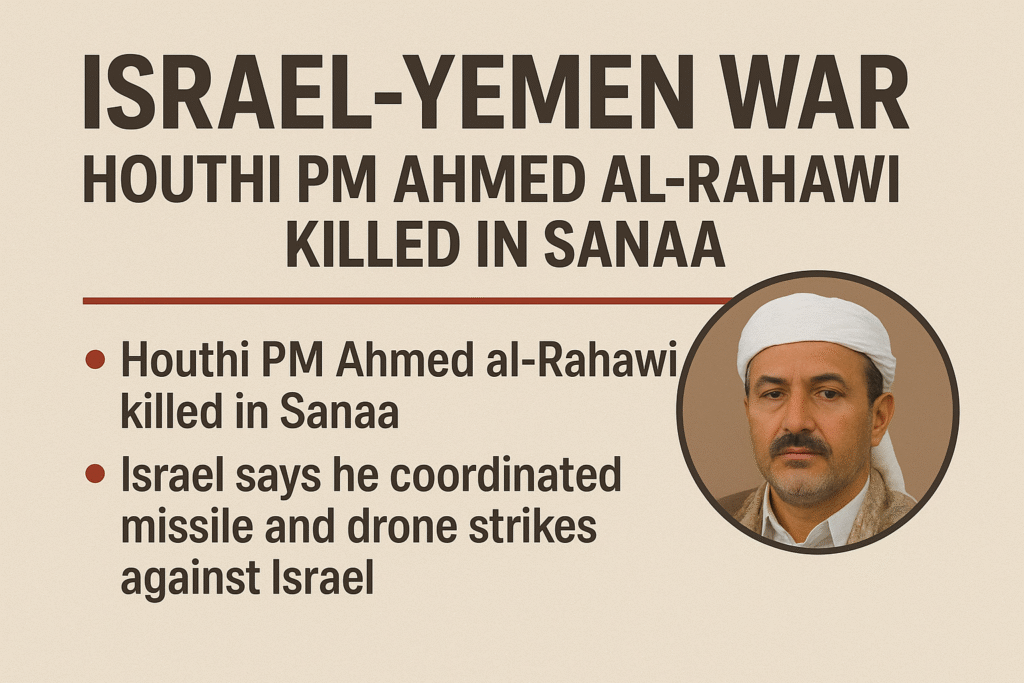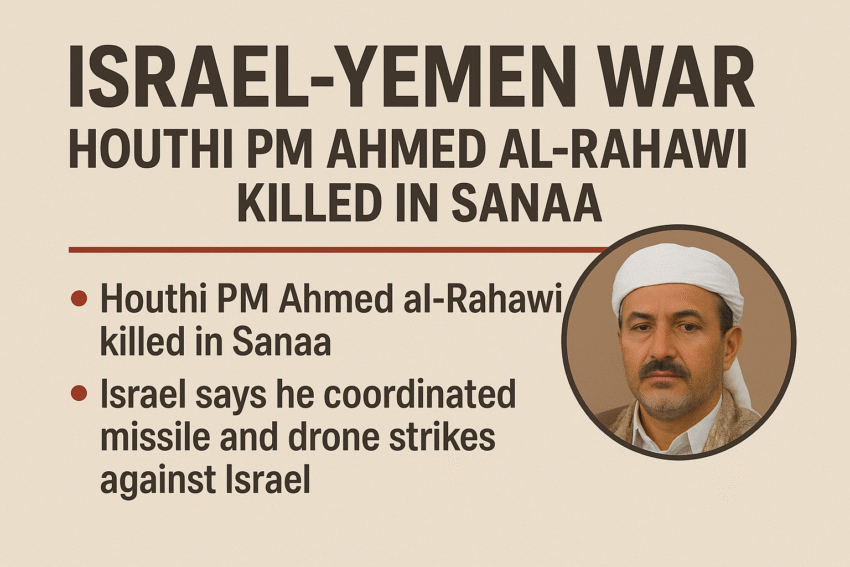
The Israel-Yemen war has entered a dramatic new phase with the confirmed killing of Houthi rebel Prime Minister Ahmed al-Rahawi in the Yemeni capital, Sanaa. The Israeli military officially acknowledged carrying out a targeted strike that eliminated the senior Houthi leader, marking one of the most significant escalations in the ongoing conflict between Israel and Yemen’s Houthi forces.
Houthi Leadership Targeted
Ahmed al-Rahawi, known as the political face of the Houthi rebels, had been instrumental in maintaining the group’s regional alliances with Iran and Hezbollah. His death delivers a major blow to the Houthis’ leadership structure, raising questions about who will succeed him.
The Israeli military claimed responsibility for the operation, emphasizing that al-Rahawi had been directly involved in coordinating missile and drone strikes against Israel. According to an official statement, Israel viewed his elimination as a “necessary step to safeguard national security.”
Why This Matters in the Israel-Yemen War
The Israel-Yemen war has often been overshadowed by Israel’s direct conflicts with Hamas and Hezbollah. However, the Houthis’ growing involvement — particularly their missile launches from Yemeni territory — has positioned them as a serious regional threat.
The death of al-Rahawi could either weaken the Houthis’ ability to sustain coordinated attacks or, conversely, galvanize the group into retaliatory strikes against Israel. Analysts warn that this may further destabilize the fragile balance in the Middle East.
Regional Reactions
- Iran, the Houthis’ primary backer, condemned the Israeli strike, calling it “an act of aggression against the Yemeni people.”
- Saudi Arabia, historically an adversary of the Houthis, remained cautious but noted that the killing might “shift the dynamics of the war in Yemen.”
- United States officials, while not directly involved, expressed concern about the escalation of the Israel-Yemen war and its potential spillover across the region.
A Blow to the Houthis’ Strategy
Experts argue that Ahmed al-Rahawi was more than just a symbolic figure. He played a crucial role in managing the Houthis’ international outreach and maintaining internal unity among the rebel factions. His death could trigger power struggles within the movement, weakening its organizational structure.
However, others caution that the Houthis have a deep bench of leaders ready to step in, and history has shown that targeted assassinations sometimes strengthen militant resolve instead of weakening it.
Impact on the Israel-Yemen War’s Future
With this latest development, the Israel-Yemen war has entered uncharted territory. Israel’s willingness to strike deep into Yemeni territory sets a new precedent in its defense strategy. The Houthis, meanwhile, are expected to respond with intensified attacks, potentially targeting Israeli cities, Red Sea shipping lanes, and even Gulf nations aligned with Israel.
If tensions continue to escalate, the conflict could evolve into a larger regional confrontation, dragging in Iran, Saudi Arabia, and possibly the United States.
Conclusion
The killing of Houthi rebel PM Ahmed al-Rahawi marks a turning point in the Israel-Yemen war. While Israel has eliminated a key adversary, the long-term consequences remain uncertain. With both sides bracing for the next phase, the Middle East stands on the edge of yet another dangerous escalation.

